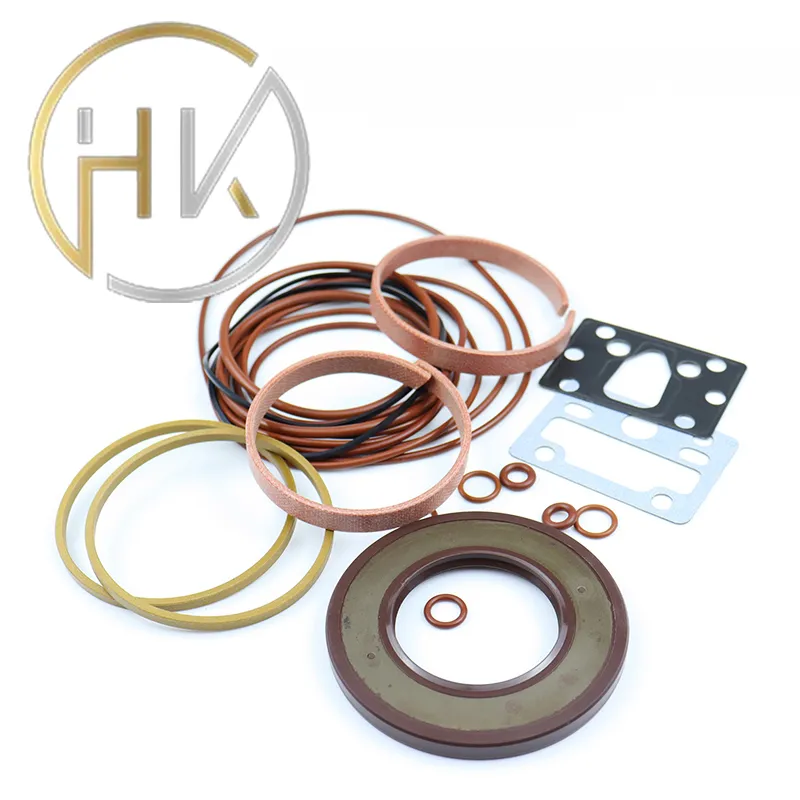Aug . 20, 2024 14:44 Back to list
Benefits and Applications of Single Acting Piston Seals in Various Industries
Understanding Single Acting Piston Seals A Comprehensive Overview
In the realm of mechanical engineering and hydraulic systems, the importance of sealing technologies cannot be overstated. Among the various types of seals available, single acting piston seals play a crucial role in ensuring the reliability and efficiency of machinery. This article delves into the characteristics, applications, advantages, and considerations associated with single acting piston seals.
What are Single Acting Piston Seals?
Single acting piston seals are designed to provide a sealing function in hydraulic and pneumatic systems, allowing pressurized fluid to act on one side of the piston while preventing leakage from that side. These seals are primarily utilized in applications where the piston only experiences force in one direction. The design typically consists of a flexible sealing element made from materials such as polyurethane, Nitrile (Buna-N), or PTFE, which can withstand the harsh conditions present in many industrial applications.
How Do Single Acting Piston Seals Work?
The operation of single acting piston seals is centered around their ability to create a tight seal when fluid pressure is applied. As the piston moves, the seal is compressed against the cylinder wall, effectively filling the gap and preventing fluid from escaping. When the piston returns to its resting position, the seal relaxes and remains in contact with the wall, maintaining its sealing integrity. This unidirectional sealing capability is what sets it apart from double acting seals, which have to prevent leakage on both sides.
Applications of Single Acting Piston Seals
Single acting piston seals are utilized in a variety of applications across multiple industries
1. Hydraulic Cylinders These seals are widely used in hydraulic cylinders for construction machinery, vehicles, and industrial equipment, where they help maintain the efficiency of the hydraulic systems. 2. Pneumatic Actuators In pneumatic applications, these seals ensure the proper functioning of actuators that convert compressed air into mechanical motion.
3. Compressors and Pumps Single acting piston seals are often found in compressors and pumps, where preventing fluid or gas leakages is crucial for maintaining pressure and operational efficiency.
Advantages of Single Acting Piston Seals
The benefits of using single acting piston seals are significant
single acting piston seal

1. Cost-Effectiveness Single acting seals are generally simpler and less expensive than double acting seals, making them a preferred choice for many applications.
2. Ease of Installation The straightforward design allows for easier installation and maintenance, leading to reduced downtime in operations.
3. Reliable Performance When properly selected and configured, single acting piston seals provide reliable performance, ensuring minimal leakage and enhanced efficiency of the machinery.
4. Versatility They can be adapted to various applications and can be customized to meet specific requirements related to pressure, temperature, and fluid type.
Considerations When Choosing Single Acting Piston Seals
While single acting piston seals offer numerous advantages, several considerations should be taken into account
1. Material Selection The choice of sealing material is critical. Factors such as temperature, pressure, and the type of fluid being sealed must be considered to avoid premature wear or failure.
2. Surface Finish The finish of the cylinder bore plays a vital role in the performance of the seal. A smooth surface can reduce friction and wear, extending the seal's service life.
3. Operating Conditions Understanding the operational environment, including temperature fluctuations and contamination levels, is essential for selecting the right seal.
Conclusion
In summary, single acting piston seals are integral components in hydraulic and pneumatic systems, playing a vital role in preventing leakage and maintaining operational efficiency. Their simplicity, cost-effectiveness, and reliability make them a popular choice across diverse industries. However, careful consideration of material, design, and application parameters is essential to ensure optimal performance and longevity. As technology advances, the development of these seals will continue to evolve, meeting the ever-changing demands of modern engineering applications.
-
TCN Oil Seal Metal Ring Reinforcement for Heavy Machinery
NewsJul.25,2025
-
Rotary Lip Seal Spring-Loaded Design for High-Speed Applications
NewsJul.25,2025
-
Hydraulic Cylinder Seals Polyurethane Material for High-Impact Jobs
NewsJul.25,2025
-
High Pressure Oil Seal Polyurethane Coating Wear Resistance
NewsJul.25,2025
-
Dust Proof Seal Double Lip Design for Construction Equipment
NewsJul.25,2025
-
Hub Seal Polyurethane Wear Resistance in Agricultural Vehicles
NewsJul.25,2025
-
The Trans-formative Journey of Wheel Hub Oil Seals
NewsJun.06,2025
Products categories
















